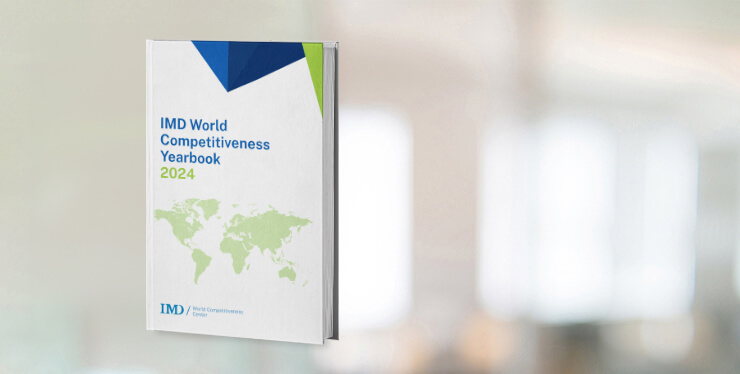
What economic lessons can Switzerland learn from the pandemic?
What lessons can Switzerland learn from the coronavirus pandemic? How has its economy performed? What can policymakers and business leaders do to navigate a safe and prosperous path into the future?
Switzerland’s economy has weathered the COVID 19 pandemic relatively well so far, but it could emerge even stronger and better equipped to deal with future crises if companies embrace greater agility and speed alongside a flexible, strong but non-invasive state.
While each sector has been impacted in different ways, Swiss entrepreneurs are cautiously optimistic about the economic outlook. However, they warn a second lockdown could prove catastrophic and argue that Switzerland cannot go it alone.
Further investment in education, digitization and new business models is required to reinforce the Swiss economy against shocks, alongside executives who have the courage to empower their employees while fostering trust with customers and teams.
At the same time, the state must ensure that the cost of navigating the pandemic does not become a heavy burden for future generations.
This summer, more than 200 SEF participants joined online to share ideas about how Switzerland’s economy could emerge from the pandemic. This white paper, available to download below in English, French and German, explores the main conclusions, covering:
- The resilience of the Swiss economy
- Business leadership in a crisis
- The role of the state
- The strengths of family businesses
- The importance of speed and agility
- Beyond COVID-19 – what next?
English
French
Une Suisse résiliente, mais jusqu’à quand?
German
Gut – Aber Wirklich Gut Genug?
Research Information & Knowledge Hub for additional information on IMD publications
Earlier this month, the European Union began executing its tariffs on China for electric vehicle (EV) imports, yet the dated practice of taxing pro...
This paper introduces the New Industrial Policy Observatory (NIPO) data set and documents emergent patterns of policy intervention during 2023 asso...

Few Business to Business (B2B) marketplaces have succeeded. Metalshub has successfully combined a software platform as a service, with a marketplac...
As of 7 March 2024, the EU Commission began to enforce its controversial Digital Markets Act (DMA). This article sheds light on the recent debate. ...
How can policies be designed to attain geopolitical goals through means that do the least harm to cross-border commerce? Doing so requires a strong...
In Switzerland, the battle over the future regulation of the banking sector is raging behind the scenes. The state and the National Bank do not wan...

Venezuela is engulfed in a political and economic crisis, which has forced over 6 million people – some 20% of the population – to flee the country...

Since the start of the Ukraine war, the US, EU, UK and other countries including Japan and Canada have increased sanctions on Russia. By late 2023,...
Research Information & Knowledge Hub for additional information on IMD publications
in The World Economy July 2024, vol. 47, no. 7, pp. 2762-2788, https://doi.org/10.1111/twec.13608
Research Information & Knowledge Hub for additional information on IMD publications
in Hitotsubashi Business Review Summer 2024, vol. 72, no. 1
Research Information & Knowledge Hub for additional information on IMD publications
Published by International Institute for Management Development ©2024
Research Information & Knowledge Hub for additional information on IMD publications
Case reference: IMD-7-2457 ©2024
Research Information & Knowledge Hub for additional information on IMD publications
in Intereconomics May-June 2024, vol. 59, no. 3, pp. 154-159, https://doi.org/10.2478/ie-2024-0032
Research Information & Knowledge Hub for additional information on IMD publications
May 2024
Research Information & Knowledge Hub for additional information on IMD publications
Research Information & Knowledge Hub for additional information on IMD publications
in The Conversation 11 March 2024
Research Information & Knowledge Hub for additional information on IMD publications
in The Conversation 4 March 2024
Research Information & Knowledge Hub for additional information on IMD publications
